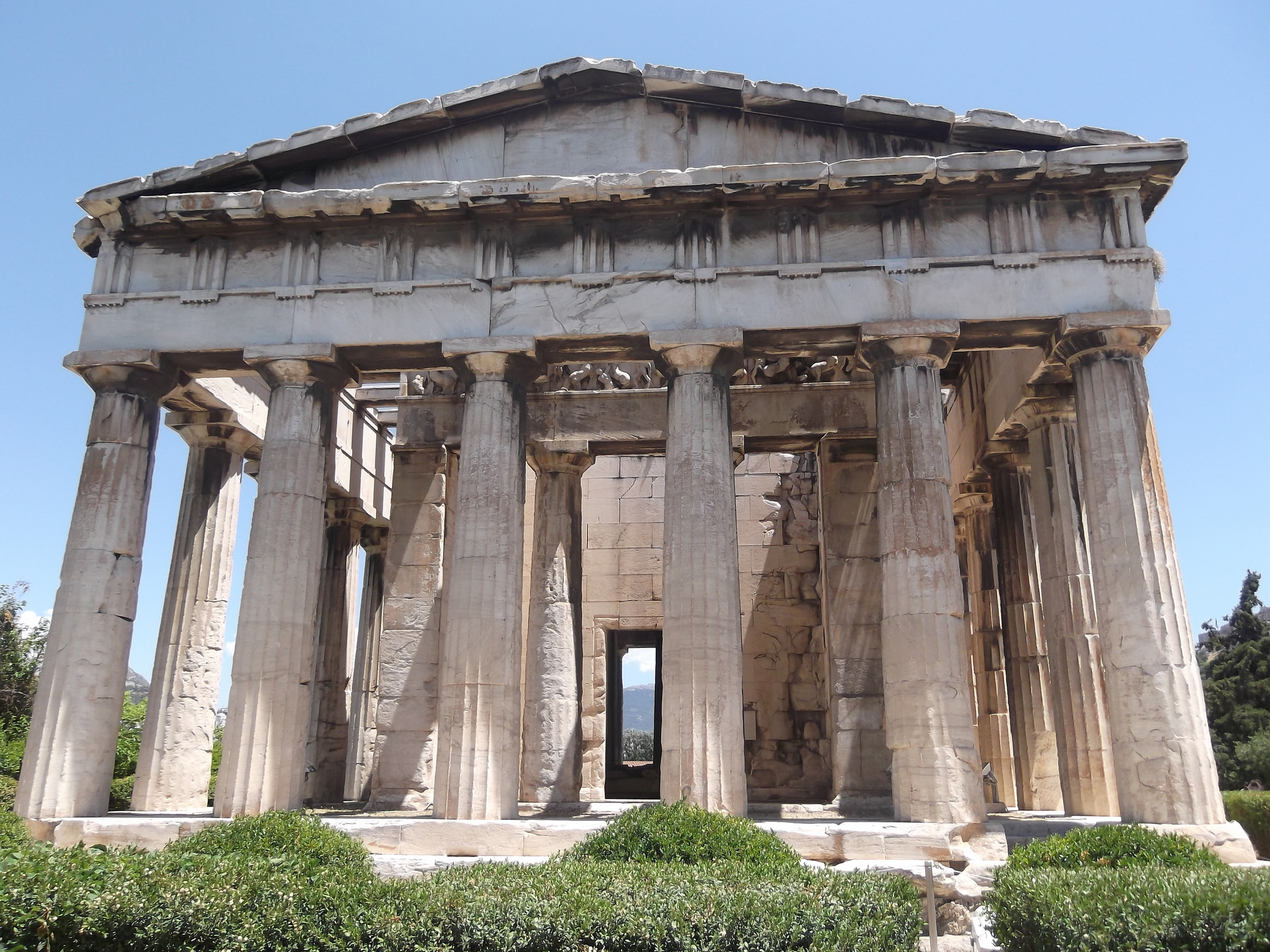Pilgrimage to Ancient Athenian Democracy guided by readings from Greek classics
The Pilgrimage to Ancient Athenian Democracy, from the Agora to the Pnyx, accompanied by exceptional readings of passages from Classical Greek authors, on the evening of 15 June, greatly exceeded the expectations of many participants. The renowned Greek actor, writer and producer Ioannis Simonides gave voice to the words written by Herodotus, Plato and Aristophanes, among others, in the 5-4th centuries BC. Androulla Vassiliou, European Commissioner for Education, Culture, Multilingualism and Youth, and Costa Carras, Vice-President of Europa Nostra, recited extracts from the Peloponnesian War by Thucydides.
“Splendid”, “marvellous” and “memorable” were some of the expressions used by the attendees to describe this journey to the cradle of Athenian democracy. John Darlington, North West Regional Director of the National Trust, shared with Europa Nostra a vivid account of this event:
“A warm June evening. We wind our way from the ancient Agora, the commercial heart of classical Athens, up through pine and cypress to the Pnyx, the hill where democracy was born. If ever there was a pilgrimage for the scholar of history, politics or simply of the human condition, then this is it. As we walk Ioannis Simonides stops, lifts a foot onto a nearby rock, opens a book and reads. He recites words written over 2,500 years ago, but which are as relevant and impactful today as they were when Plutarch or Plato first put kalamos to parchment. We listen. Listen to Athenian voices talk of politics and obligations, complain about the price of grain, debate the rights of slaves and worry about foreign affairs. They don’t talk of democracy: they are democracy.
We continue up the hill, past today’s Athenians: crowds of young and old, families and singles, animated or pensive, walking the dog or debating the issues of the day (and there are plenty of those in modern Greece). We stop in front of the Temple of Hephaestus, and again Simonides strikes a pose, focuses on the page and continues. This time Herodotus, the Father of History, in a passage in which he recounts the impact of freedom on the people of Athens. We walk on and I catch Ioannis Simonides to tell him how much I am enjoying the readings. My only regret is that we cannot hear some of them spoken in his native Greek. He smiles and says: ‘later on’.
Finally, we reach the Pnyx. A small stone marks where the meeting place of one of the earliest democratic assemblies took place. Our view is over all of Athens, a skyline of hills punctuated by the iconic symbol of Greece: the Acropolis. Again we listen to the words spoken by Simonides, this time Aristophanes’ Ekklesiazousai (Assembly Women) – in it the actor, a man, acts as a woman who is pretending to be a man. Confused? Not really. This is part of a common comedic inheritance that Shakespeare recognised and still has resonance today.
The setting sun turns the Acropolis first a soft pink, then rose and finally deep crimson and I get my wish. Commissioner Vassiliou reads from Thucydides in Greek. I don’t understand what she is saying, but frankly that’s irrelevant: it’s all about atmosphere now”.








